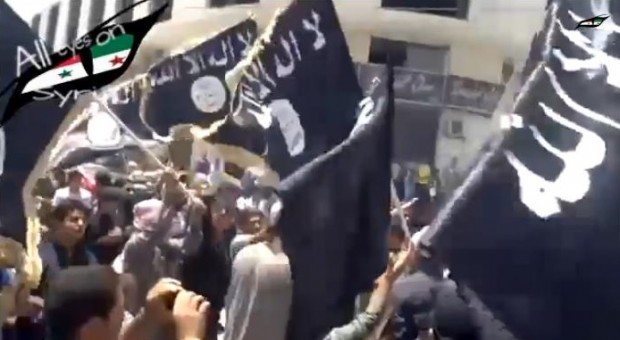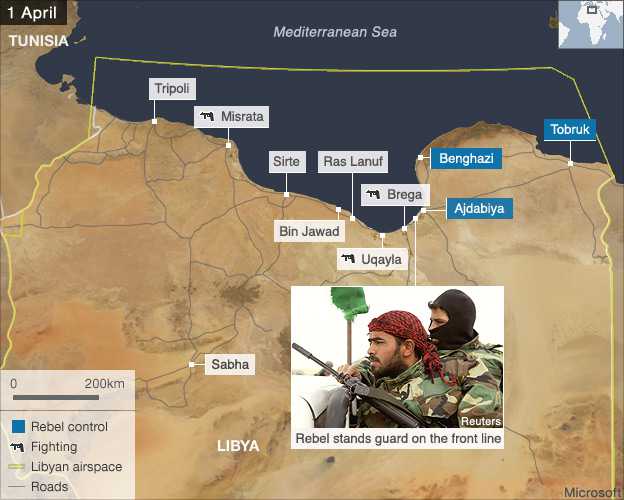By MARC CHAMPION
ISTANBUL—The Libyan regime and leaders of the rebel opposition are each offering proposals on how to reach a cease-fire in the Arab nation’s conflict, a Turkish official said Monday, as an envoy from Col. Moammar Gadhafi arrived in Ankara for talks.
Libya’s rebel government in Benghazi has indicated it also will visit Ankara to discuss a possible cease-fire, in the wake of Monday’s visit by Deputy Foreign Minister Abdelati al-Obeidi, the Turkish official said. No date for the visit had been set, he said.
Mr. Obeidi, deputy to recently defected Foreign Minister Moussa Koussa, wasn’t carrying any personal message from Col. Gadhafi, according to the official, countering speculation in Turkish media that terms for Col. Gadhafi’s exit from Libya might be under negotiation. Others have cautioned the visit by Libya’s official could be another delay tactic by Col. Gadhafi as he presses with an offensive against the rebels on the ground.
In a news conference following the decision by Italy to recognize the governing body of rebel forces as Libya’s sole “legitimate interlocutor,” the country’s foreign minister said the offer by Col. Gadhafi’s envoy was “not credible.”
Italy became the third country to recognize the rebel group, after France and Qatar, as Rome seeks a way to re-establish its access to Libyan oil and natural gas. Speaking at a news conference after meeting with Ali al-Essawi, the foreign envoy of the rebel-backed Libyan National Transitional Council, Italian Foreign Minister Franco Frattini said Italy planned to send an envoy to Libya in the coming days. He also said Italy is also seeking to send medical supplies and other aid to the embattled Libyan city of Misrata.
Rome’s support is a boost to rebel forces, because Italy is Libya’s biggest trading partner and the biggest buyer of the North African country’s oil and natural-gas supplies.
Mr. Frattini said Paolo Scaroni, chief executive of Italian oil giant Eni Spa, recently traveled to Benghazi to meet with council members and discuss plans to revive the oil company’s operations in Libya. But a foreign ministry spokesman said Mr. Scaroni spoke to council members over the phone without traveling to Benghazi, adding that Mr. Frattini had misspoken. An Eni spokesman declined to comment.
U.K. Foreign Secretary William Hague said Monday that the first meeting of the political ‘Contact Group’ on Libya that was agreed at the London Conference last week will take place next week in Doha, Qatar.
Mr. Hague told the U.K. Parliament that while Britain is not arming opposition forces it is prepared to supply “non-lethal equipment” and will be supplying the Interim Transitional National Council with telecommunications equipment.
Mr. Hague also said that since Thursday a total of 701 sorties and 276 strike sorties have been conducted over Libya.
Rebel forces on Monday took back much of Brega, a strategic oil town that has repeatedly changed hands over weeks of fighting with Col. Gadhafi’s forces, the Associated Press reported. Women and children were seen fleeing the coastal town as the battle raged.
In Turkey, Mr. Obeidi arrived by coincidence as North Atlantic Treaty Organization Secretary-General Anders Fogh Rasmussen was in the capital. Mr. Rasmussen spent an hour each in talks with Prime Minister Recep Tayyip Erdogan and Foreign Minister Ahmet Davutoglu.
Turkey has been a reluctant supporter of Western military intervention in Libya, and its leaders were furious at being initially sidelined by the Western allies from decision-making. Turkish officials were tight-lipped about the content of Monday’s discussions. A spokesman for Mr. Erdogan said the talks with Mr. Rasmussen concerned “how to bring peace to Libya in line with United Nations Security Council resolutions 1970 and 1973.”
The resolutions, adopted in February and March, imposed sanctions on the Libyan regime and called for a cease-fire, while also imposing an arms embargo, a no-fly zone and a mandate to use “all necessary means” to protect civilians.
In a statement to reporters after the meeting, Mr. Davutoglu called he Libya talks with Mr. Rasmussen “extensive,” but focused his remarks on Turkey’s efforts to evacuate the wounded from Misrata and fromBenghazi.
According to Mr. Davutoglu, Turkey had been trying for a week to dock a ship in Misrata, but succeeded in getting security pledges from both sides only on Friday. The ship docked in Misrata on Saturday, and collected 250 wounded there before receiving more in Benghazi. It was expected to arrive in Turkey on Tuesday with a total of about 475 passengers, Mr. Davutoglu said.
Turkey is taking a leading role in the humanitarian side of the NATO operation and is active in enforcing a UN-imposed arms embargo, but not the no-fly zone. Turkey is a NATO member and has the alliance’s second largest military.
From makeshift beds inside the cruise-ship-turned-hospital, dozens of men, many nursing gunshot wounds and missing limbs, lay on thin mats in the ship’s hull, speaking of brutal government attacks and young rebels struggling to fend them off, according to the AP.
Mohammed Abu Libous, 37, said he and seven relatives were working in a bakery on the outskirts of Misrata, rebel forces’ last major stronghold in western Libya, when about 20 of Col. Gadhafi troops entered in three tanks and started harassing local residents, the AP reported.
They entered his shop and told him and his brother to surrender their weapons. When they said they had none, the troops took them out in the street. They shot his brother through the stomach and him once in each thigh, he said.
“While I was on the ground bleeding, they bound the others and took them away,” he said, adding that the troops stole all their money, cell phones and rings.
Misrata, 125 miles southeast of the capital Tripoli, was one of two western cities that rose up early in the revolt against Col. Gadhafi. His elite forces besieged Misrata for weeks, cutting off food and water supplies and power lines, but the rebels have stood their ground.
After initially dismissing the prospect of NATO military intervention as “nonsense,” Mr. Erdogan has since pushed for the alliance to take over control of the U.S.- and French-led no-fly zone, suggesting that some countries involved were more concerned about securing oil supplies than in the plight of Libyan civilians.
Mr. Obeidi visited Greece on Sunday, and will travel from Ankara to Malta, delivering the same ideas in each place, according to the Turkish official. He said Turkey would listen to what the Libyan had to say rather than entering into any immediate negotiation. All three countries have been traditionally friendly to the Libyan regime.
In Greece, Mr. Obeidi met with Prime Minister George Papandreou. The Turkish official said Mr. Obeidi wouldn’t meet with Mr. Erdogan but with the foreign ministry.
—Stacy Meichtry in Rome and Alistair MacDonald in London contributed to this article.
Write to Marc Champion at [email protected]






 Twelve-year-old Muhammad was peppered with shrapnel when a rocket exploded near him
Twelve-year-old Muhammad was peppered with shrapnel when a rocket exploded near him As the ship arrived in Benghazi several hundred rebel supporters waved and cheered on the quayside
As the ship arrived in Benghazi several hundred rebel supporters waved and cheered on the quayside


